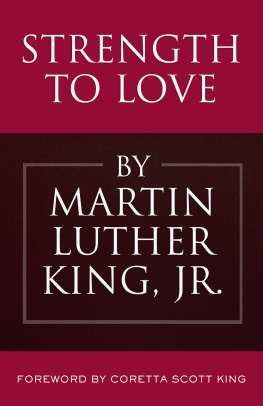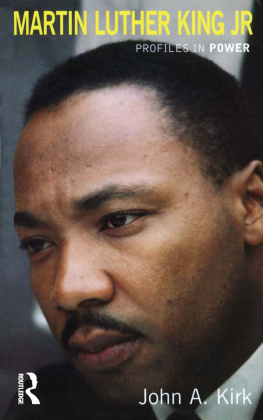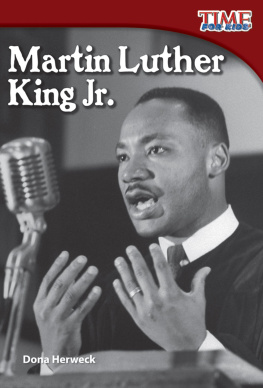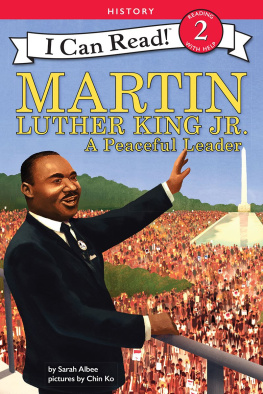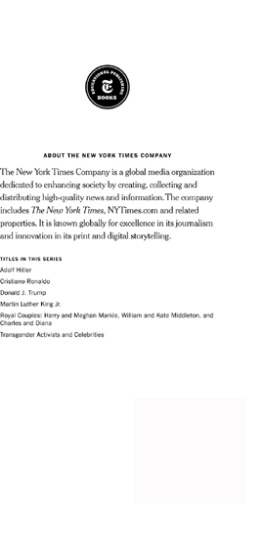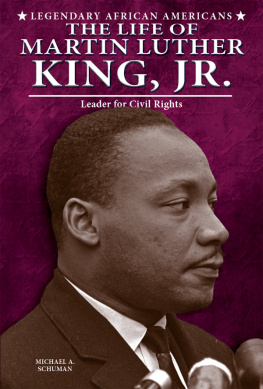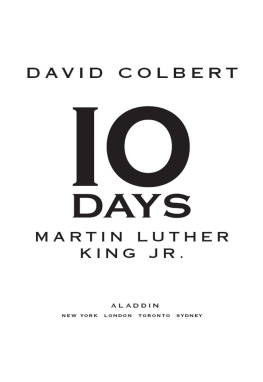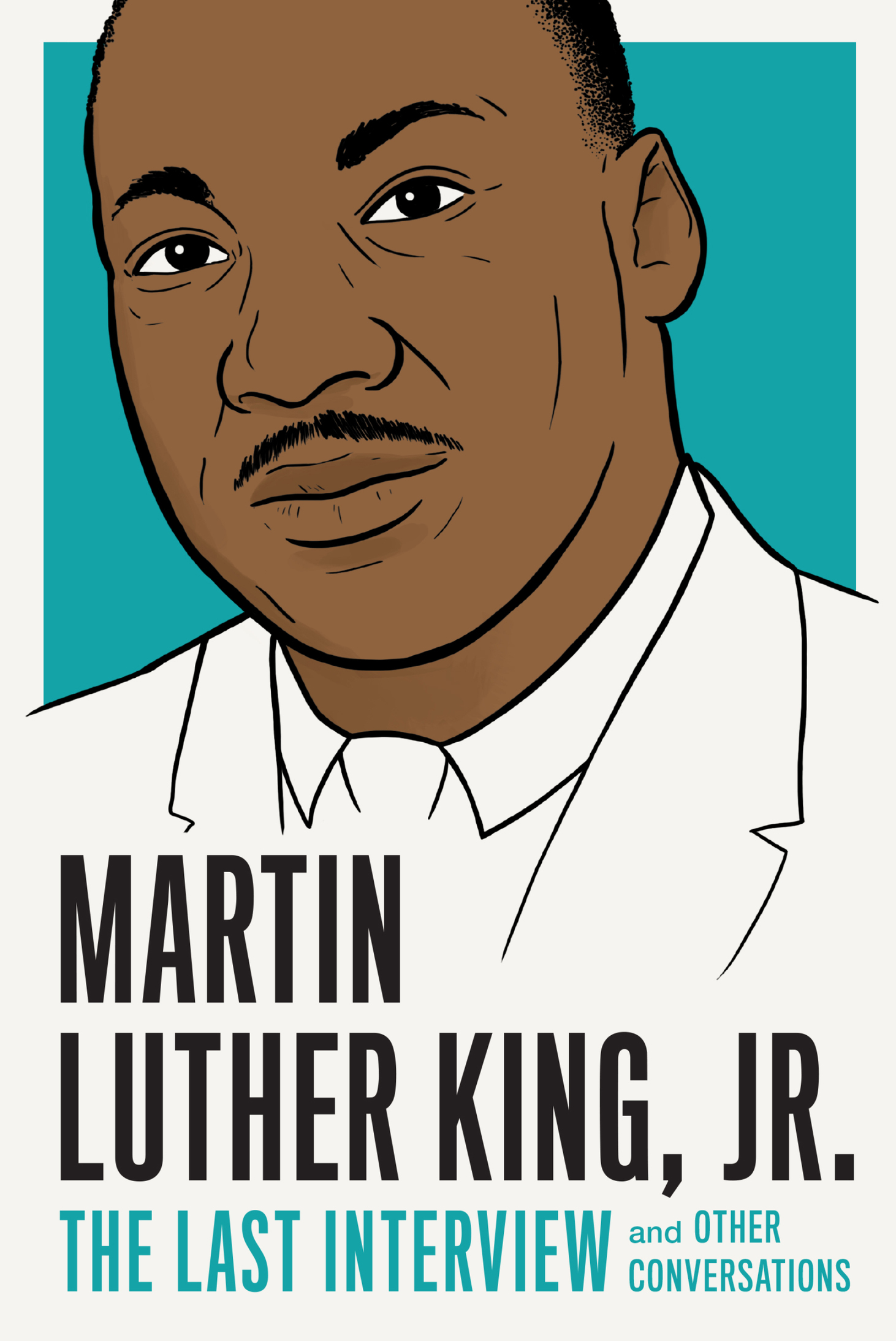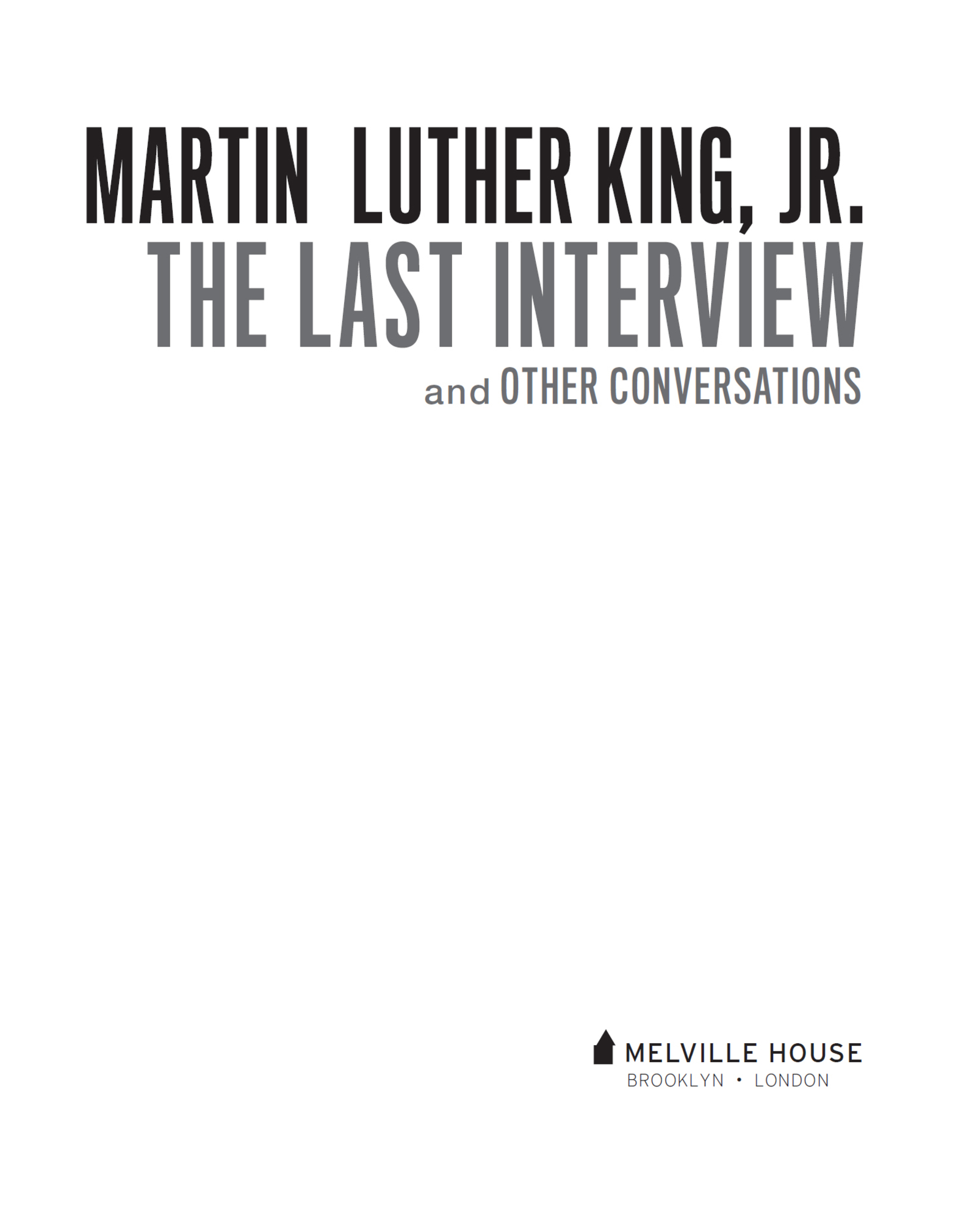The New Negro is reproduced with permission of Elaine Heffner.
Advice for Living: Courtesy Ebony Media Operations, LLC. All rights reserved.
P. Dora. Originally published in abridged form in the New York Post, July 11, 1958.
Conversation with Martin Luther King: Copyright 1968 by The Rabbinical Assembly. Originally published in Conservative Judaism, March 25, 1968, vol. 22, no. 3, .
EDITORS NOTE
We remember the Rev. Dr. Martin Luther King, Jr., as a master rhetoricianperhaps the centurys most inspiring. Captivating in person, as in his I Have a Dream speech, and commanding on the page, as in the Letter from a Birmingham Jail, he was a force, eminently and permanently quotable.
It can be startling, then, to imagine him lowered to the rank of mere conversationalist or humble interview subject. What would it be like to speak with him? Could he improvise? One might expect to find in this collection some rambling digressions, some overlong pauses, some stuttering, some half-considered ideas. King is, after all, addressing some of the most important questions mankind has ever faced. But there just arent many of these conversational imperfections to be found.
Instead, as we see again and again in this collection how Kings responses to the most daunting questions seem to arrive fully formed, speechlike in their gravity, but natural and rhythmic in their delivery.
This is already apparent in the first piece included herehis first televised talk-show appearance. There, on The Open Mind with Richard Heffner, King describes a mass awakening, a new state of black consciousness necessary for revolution. It is sharp cultural criticism and stirring call to action in measured amounts, and yet it feels conversational.
The second selection here is a fascinating piece of publishing history: an installment from Kings monthly personal advice column in Ebony, which he began in 1957 and discontinued at the end of 1958 on doctors orders to rest after being stabbed (by a mentally ill woman at a Harlem book signing). In it he answers questions about relationships, white allyship, damaging representations of black characters in childrens stories, and more. In advising how a stepfather and his new stepdaughter might overcome their dislike of each other, he explains, in the same terms he conceived of racial integration, that communication between the two parties would surmount their fear of the unknown and bring them together. Indeed, a major takeaway from this collection is that, for King, the political was always personal, and the other way around.
In a long, thoughtful interview with legendary 60 Minutes journalist Mike Wallace, King draws a distinction between desegregation and integration, pointing out that the latter involves a personal and emotional element that is beyond the politics of desegregation. Unable to have King as a guest on the television show he did before 60 Minutes, Night Beat, Wallace conducted this long interview separately, and published a small portion of it in the New York Post. The version included here is the full interview as found in Wallaces papers after his death and has never before been published in its entirety.
The fourth selection comes from the Pulitzer Prizewinning poet and novelist Robert Penn Warrens collection of interviews with civil rights leaders, titled Who Speaks for the Negro? Warrens excellently chosen questions make for one of the finest documents we have on Kings thoughts on his place in history and the aims of the civil rights movement as a whole.
The last interview here, and the last full interview of Kings life, took place at a resort in New Yorks Catskill Mountains, just ten days before his death. Of course, no one knew that the event, the 68th Annual Convention of the Rabbinical Assembly, would be one of his last. But the resulting transcriptcovering subjects as diverse as Black Power as a concept, peace in the Middle East, presidential candidates, Vietnam protests, and the ultimate goal of social justiceprovides a fitting close to this collection.
These conversations span a little more than a decade, from 1957 to 1968, encompassing the relatively short time King was in the public eye. Note that among them, he is often asked What does the future hold? The question has a tragic ring to it today. But in his inspiring responses we may find a blueprint for today.
THE NEW NEGRO
INTERVIEW WITH JUDGE JULIUS WATIES WARING AND MARTIN LUTHER KING, JR., BY RICHARD HEFFNER
PBS, THE OPEN MIND
FEBRUARY 10, 1957
HEFFNER: Well, gentlemen, suppose we begin this discussion by letting me, well, first ask you, Dr. King, in your estimation, what and who is this new Negro?
KING: I think I could best answer that question by saying first that the new Negro is a person with a new sense of dignity and destiny with a new self-respect; along with that is this lack of fear which once characterized the Negro, this willingness to stand up courageously for what he feels is just and what he feels he deserves on the basis of the laws of the land. I think also included would be this self-assertive attitude that you just mentioned. And all of these factors come together to make what seems to me to be the new Negro. I think also I would like to mention this growing honesty which characterizes the Negro today. There was a time that the Negro used duplicity, deception torather as a survival technique; although he didnt particularly like conditions hehe said he liked them because he felt that the boss wanted to hear that. But now from the housetops, from the kitchens, from the classrooms, and from the pulpit, the Negro says in no uncertain terms that he doesnt like the way hes being treated. So at long last the Negro is telling the truth. And I think this is also one of the basic characteristics of the new Negro.


